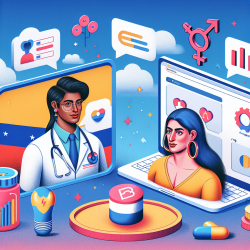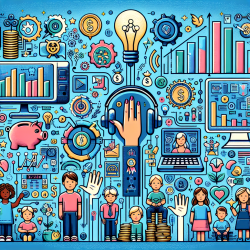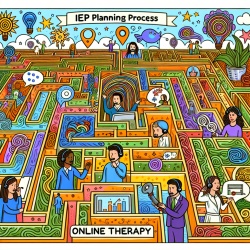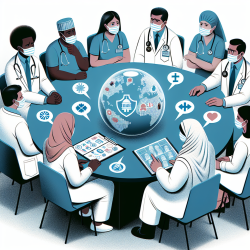Empowering Change: Transforming Lives through Understanding and Action
In the realm of special education and therapy, understanding the unique challenges faced by marginalized groups is crucial for effective intervention. The study titled Examining Human Rights and Mental Health among Women in Drug Abuse Treatment Centers in Afghanistan provides valuable insights that can guide practitioners in improving their skills and approaches. This research highlights the intersection of human rights violations and mental health issues among Afghan women, offering a lens through which we can enhance our understanding and response to similar challenges in our practice.
Key Findings and Their Implications
The study reveals that Afghan women in drug abuse treatment centers have experienced significant human rights violations, which are closely linked to mental health issues. Key findings include:
- 50% of women reported experiencing at least one human rights violation prior to entering treatment centers.
- 91% experienced limitations in social functioning, while 41% had suicidal ideation, and 27% attempted suicide within 30 days prior to treatment.
- Risk factors for human rights violations include marital status, ethnicity, literacy, and employment status.
Implementing Research Outcomes in Practice
For practitioners, these findings underscore the importance of a holistic approach that addresses both the psychological and socio-cultural dimensions of therapy. Here are some strategies to consider:
1. Holistic Assessment
Integrate comprehensive assessments that consider the socio-cultural background and human rights context of clients. This will help in identifying underlying issues that may not be immediately apparent but are critical to effective intervention.
2. Culturally Sensitive Interventions
Develop culturally sensitive therapeutic interventions that respect and incorporate the cultural norms and values of the clients. This includes understanding the impact of gender-based inequalities and societal pressures.
3. Empowerment through Education
Offer educational programs and vocational training to empower clients. Education can be a powerful tool in preventing future human rights violations and improving social functioning.
4. Advocacy and Support Networks
Encourage the formation of support networks and advocate for the rights of marginalized groups. This can help in creating a supportive environment that fosters healing and growth.
Encouraging Further Research
While the study provides a foundational understanding, further research is needed to explore the long-term impacts of integrated treatment approaches that combine mental health support with human rights advocacy. Practitioners are encouraged to contribute to this growing body of knowledge by conducting studies that explore innovative interventions and their outcomes.
To read the original research paper, please follow this link: Examining human rights and mental health among women in drug abuse treatment centers in Afghanistan.










